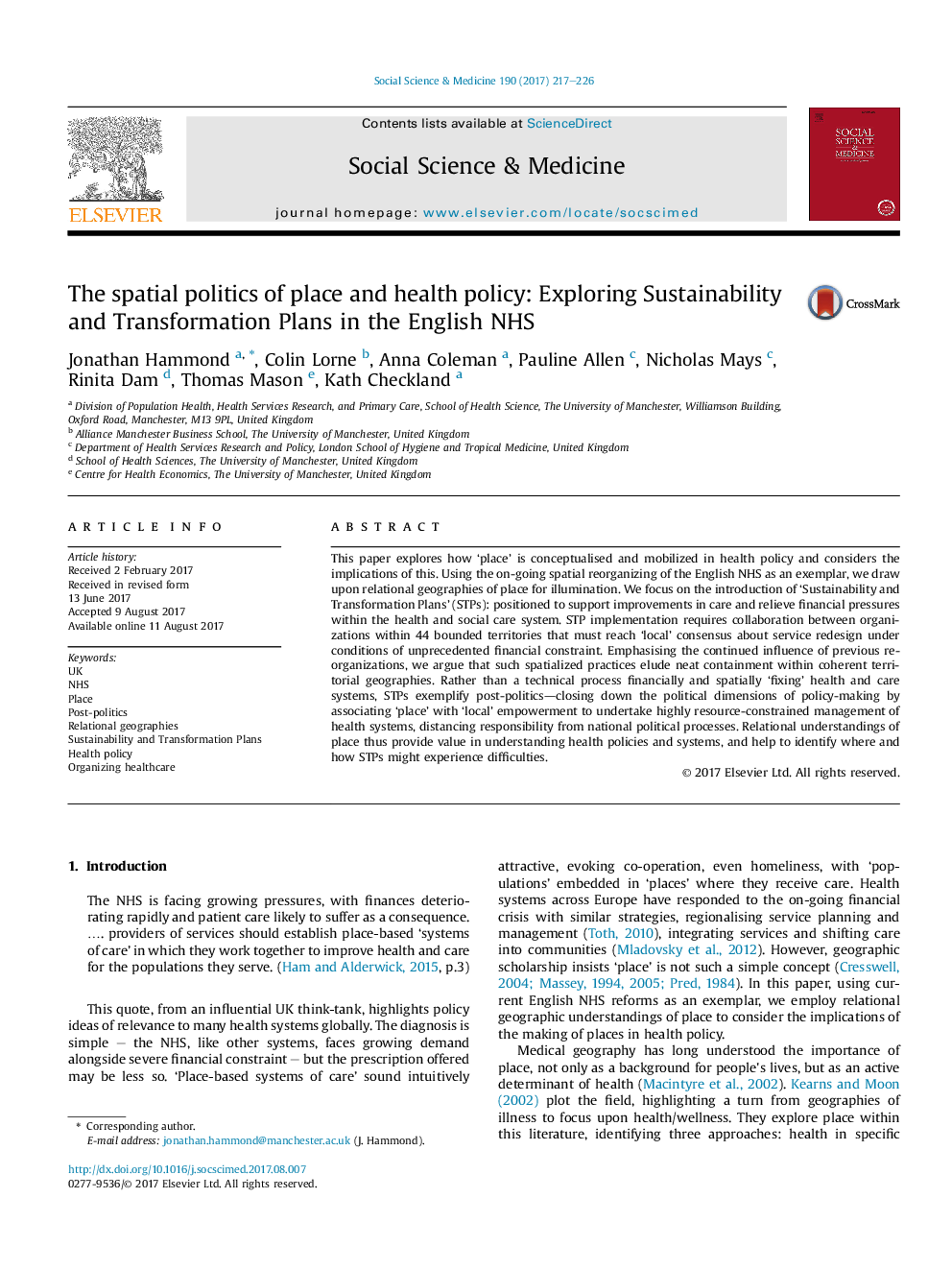| Article ID | Journal | Published Year | Pages | File Type |
|---|---|---|---|---|
| 5046336 | Social Science & Medicine | 2017 | 10 Pages |
â¢Place emerging as a concept for re-organizing health systems under austerity.â¢We focus upon Sustainability and Transformation Plans (STPs) in the English NHS.â¢Relational geography examines how places are under construction and contested.â¢Representing STPs as a technical exercise made through local consensus is problematic.â¢Place may be deployed to foreclose the wider spatial politics of health policy.
This paper explores how 'place' is conceptualised and mobilized in health policy and considers the implications of this. Using the on-going spatial reorganizing of the English NHS as an exemplar, we draw upon relational geographies of place for illumination. We focus on the introduction of 'Sustainability and Transformation Plans' (STPs): positioned to support improvements in care and relieve financial pressures within the health and social care system. STP implementation requires collaboration between organizations within 44 bounded territories that must reach 'local' consensus about service redesign under conditions of unprecedented financial constraint. Emphasising the continued influence of previous reorganizations, we argue that such spatialized practices elude neat containment within coherent territorial geographies. Rather than a technical process financially and spatially 'fixing' health and care systems, STPs exemplify post-politics-closing down the political dimensions of policy-making by associating 'place' with 'local' empowerment to undertake highly resource-constrained management of health systems, distancing responsibility from national political processes. Relational understandings of place thus provide value in understanding health policies and systems, and help to identify where and how STPs might experience difficulties.
